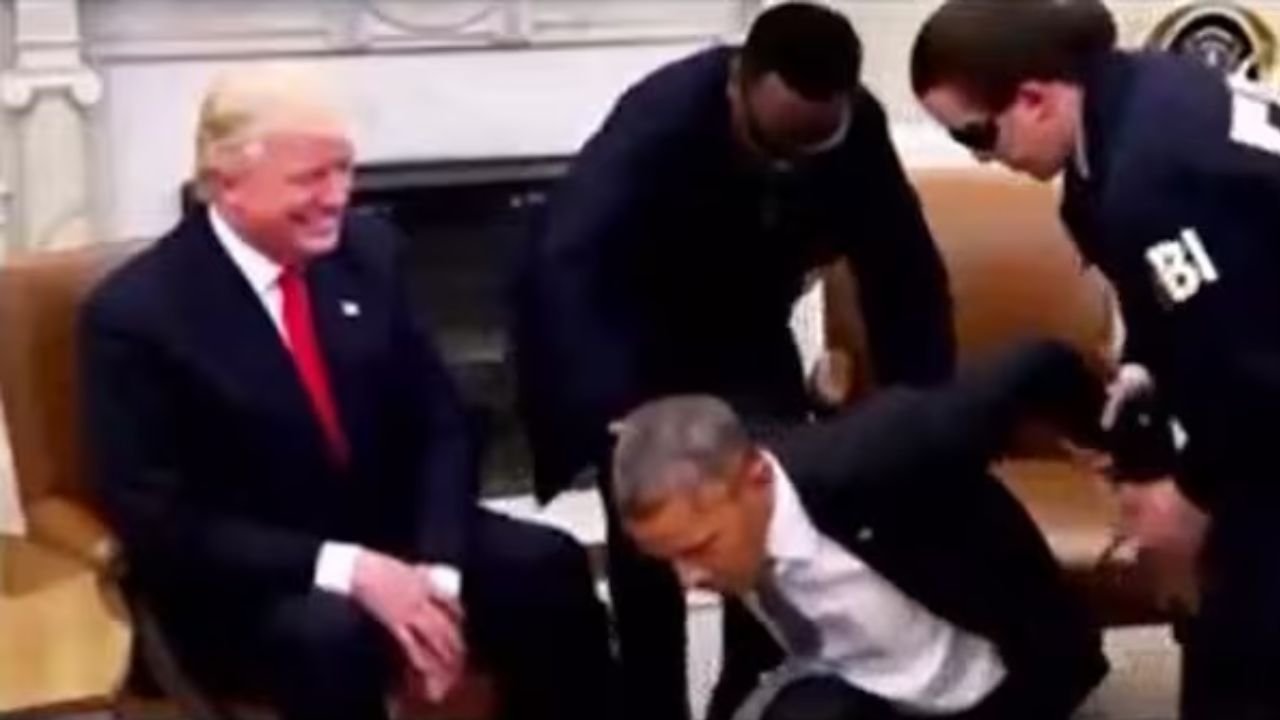Trump Sparks Outrage With AI Video Depicting Obama’s Arrest in Oval Office

WASHINGTON, D.C. — Former President Donald Trump is facing widespread backlash after sharing an AI-generated video that falsely depicts former President Barack Obama being arrested by FBI agents in the Oval Office.
The video, posted Monday on Trump’s Truth Social account, shows two agents placing Obama in handcuffs while Trump watches, smiling from a nearby chair. It quickly went viral, amassing views in the millions — but drew immediate criticism for its lack of context and misleading presentation.
“Trump did not issue a disclaimer for the video being fictional,” noted critics, with many calling the post “deeply irresponsible”, especially given the growing concerns around AI deepfakes in political messaging.
What the Video Shows
The clip begins with Obama saying, “Especially the President is above the law,” before cutting to a series of U.S. politicians repeating phrases like “No one is above the law.” It then cuts to the fabricated arrest, created using deepfake AI technology, with Obama appearing to be restrained by men labeled “FBI” in what resembles the Oval Office.
The same video was shared by Trump just weeks after accusing Obama of being involved in “high-level election fraud”, further inflaming partisan tensions.
As reported by multiple outlets including Hindustan Times, there was no disclaimer in the original post indicating the video was fabricated — a move experts warn could set a dangerous precedent during an election year.
Reactions and Ethical Concerns
Fact-checkers and political commentators were swift to condemn the video, arguing that misleading deepfakes can manipulate public perception and erode trust in real events.
“This is not satire — it’s manufactured misinformation meant to shock,” said one analyst quoted by USA TODAY. “In an age where AI can blur the lines of reality, prominent figures have a responsibility to clarify fiction from fact.”
Legal scholars also raised the alarm, noting that the First Amendment does not protect deceptive political propaganda when it can incite unrest or endanger public figures.
The Growing Threat of Political Deepfakes
This incident adds to the increasing use of AI tools in political messaging — often without public awareness. Recent months have seen a rise in fabricated videos, voiceovers, and face-swaps used to smear opponents or reframe narratives.
The Federal Election Commission (FEC) has been reviewing petitions to require disclaimers on AI-generated political content, especially as the 2026 midterms draw near.
Meanwhile, tech platforms remain divided on how to regulate such content. While Meta has rolled out labels for AI-edited content on Instagram and Facebook, Truth Social currently has no such system in place.
A Call for Caution and Clarity
Media watchdog groups are urging public figures to refrain from sharing altered content without clear labeling, warning that “the damage can be done even if the truth comes out later.”
Join the discussion at ChicagoMusicGuide.com — where do you stand on AI in political media? Should deepfakes like this be banned outright, or just regulated with clear disclaimers?
